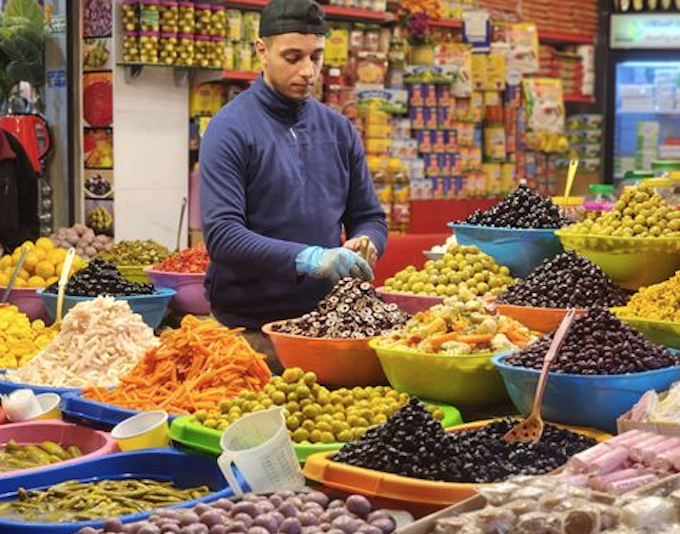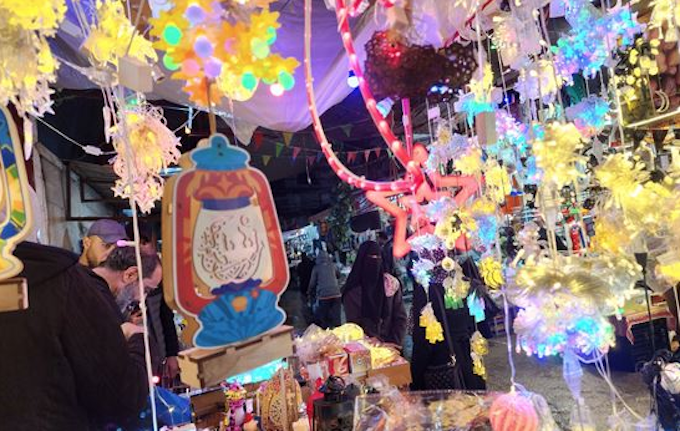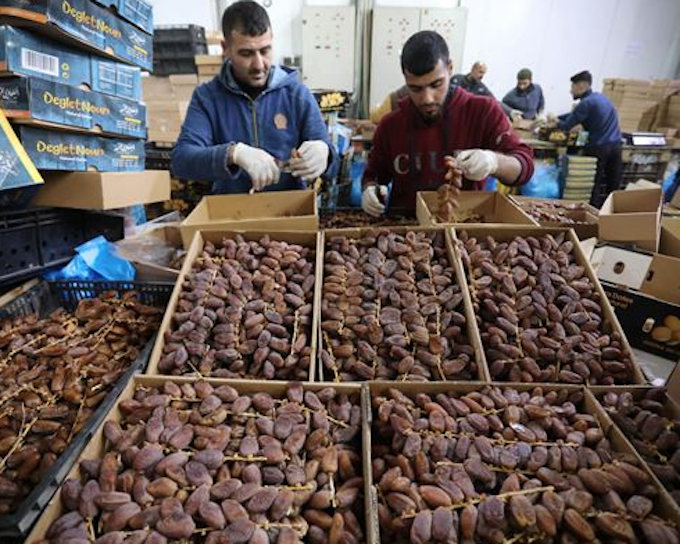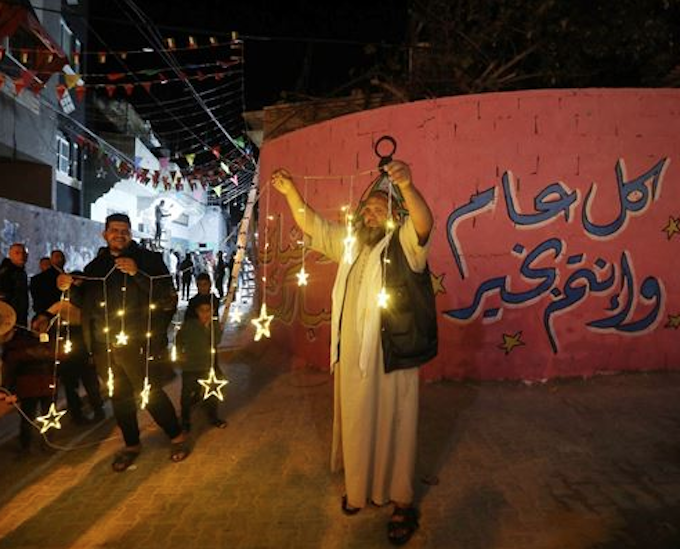
By Wafa Aludaini in Gaza
During the holy month of Ramadan, Muslims from all corners of the globe come together to celebrate. Each country has its own traditional rituals.
In Palestine, Ramadan is more than just a month of fasting and worship; the month is an important opportunity to connect with the stolen culture of Palestine’s ancestral heritage.
Although the occupation’s restrictions and technology impact the normally festive atmosphere of the holy month, Palestinians still preserve the practices and traditions which make the celebrations uniquely Palestinian.
In the days leading up to the announcement that the month of Ramadan has commenced, Palestinians begin to prepare. Streets, mosques, homes are decorated with lanterns and lighting, and merchants prepare their shops with several kind of dates, sweets, pickles, juices and more.



Ola Abu Salim, a mother and artist used to design and produce Ramadan lanterns from her home in Deir Albalah town, gifting to her neighbours and relatives, but Ola, whose house is decorated with many kinds of lanterns in diverse sizes and shapes, confided to me: “I recently started to make big number of lanterns and sell them to shops and merchants to make a living for my family amid the ongoing dire situation in the blockaded Gaza [Strip].”
Ramadan vibes
During Ramadan, family gatherings are prioritised and iftar meals are shared with entire extended families.
Worship during Ramadan is essential. The late evening prayer, known as the Tarawih, is held an hour after eating the Ramadan iftar. Men and women perform prayers in mosques.
Om Ahmed, 66, says “During Ramadan I go with my husband, sons, daughters and my granddaughters to the mosque.”
She tells me: “We like walking to the mosque all together, we can see joy on the kids’ faces because we can gather in the mosques only during Ramadan and Eid.
“We enjoy watching fireworks at nights. In the past it was simple and we made handmade fireworks with simple things. Now it’s different, with more lighting.”
Om Ahmed also recalls the atmosphere of Ramadan 40 years ago: “I used to cook and send a dish to my neighbor from what I cooked, and my neighbour sends me the same.
“The social and family relations were closer and stronger in the past than these days amid using the technology and the internet so people contact online more than in person.”
A Musaharati is a drummer who wears a mask, beats a drum, and chants Ramadan songs as they roam neighborhoods in the early morning to wake the people up for Suhur, the pre-dawn meal before the daily fast begins.
Despite the availability of alarms via mobile devices, the custom continues in most Palestinian cities and towns. Sometimes the Musaharati is one person, sometimes a group.
It is customary for people to offer gifts to the drummers to thank them for their efforts to wake them up. On the night of the announcement of the advent of the holy month, Palestinian children gather in the neighbourhoods awaiting the proclamation that the fast has begun.
The audiovisual and print media outlets also devote a great deal of spaces during Ramadan to advise and support those who fast.
Ramadan feast
The Palestinian holiday table offers a diverse range of popular and traditional dishes such as molokhia, sumaghiyyeh, fatteh, akoub, jereesheh, musakhan and maqlouba. No meal is left without pickles, especially for Gazans. As for beverages, Palestinians prepare juices, particularly of tamarind, almonds, liquorice and carob.
People also consume plenty of the qatayef desert.
Another common practice is Takaya, where groups of people cook and provide hot iftar meals for low-income families.
Muhammad Astal, 52, a Palestinian from Gaza, says, “In the past, I used to help my father during Ramadan to prepare and distribute Ramadan Takaya for the poor and the orphaned families.
“And now I serve it by myself after my father passed away 2 years ago, for the sake of taking Ajr and helping people.”
Fears grow of renewed escalation
Ramadan comes this year amid growing fears of rising tensions and escalations in the Occupied West Bank, Jerusalem, Gaza and the occupation jails. In the occupied city of Jerusalem, the Al-Aqsa Mosque has in the past been the main centre of worship for all Palestinians but now it has become impossible to reach for those coming from outside the city.
The Israeli military checkpoints, the deployment of occupation soldiers on the roads, and the closure of the entrances to the city to Muslim visitors; all of these measures have made the Holy City inaccessible to Palestinians from outside of Jerusalem.
Nevertheless, many Palestinians always succeed in praying in the Old City, bypassing all barriers.
In the occupation prison, Palestinian detainees have announced that they will go on hunger strike with the start of Ramadan, a step that comes after several protest steps refusing the new inhumane practices imposed upon them including banning them from fresh bread, medical treatment and canteen access.
And despite all of the occupation’s harassments — which increase during Ramadan — the Palestinian custom of celebrating Ramadan remains.
Wafa Aludaini is a Gaza-based journalist and activist. She contributed this article to the Palestinian Information Centre. It is republished from Kia Ora Gaza with permission.












































